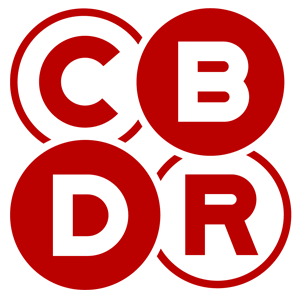Graduate Student Small Grants Program
The CBDR Small Grants Program was created in the Spring of 2005 to support high-quality work in behavioral and decision research. Recipients are eligible for up to $2,500 to support their research. Below, you will find instructions on how to apply for a CBDR small grant. To be considered, you must complete the CBDR Small Grant Application, and if awarded, submit the CBDR Small Grant Follow-Up Report Form one year following grant approval.
Eligibility
Applicants must be doctoral students or junior faculty members at Carnegie Mellon University. Priority will be given to first time applicants who are doctoral students or CBDR affiliates, and projects without alternative sources of funding (such as that provided by senior faculty co-authors). Please note that repeat applicantants will only be considered if the past project is in good standing and a CBDR Follow-Up Report Form has been received and reviewed by the CBDR Steering Committee.
Letter of Support
All applicants must be supported by a letter from a faculty member who is a CBDR affiliate. The letter of support should be no more than a page long and should comment briefly on the merits of both the project and the investigator. The following points should be made clear to reviewers: 1) Who is supporting the applicant and what is their relationship (advisor, mentor, course instructor, etc.), 2) What qualifications, skills or experiences does the applicant have that makes them capable of completing the project, 3) What is the value of the project, and 4) How does the project align with the applicant's academic goals. The letter of support should be sent directly by the faculty member to cbdr@andrew.cmu.edu as a single PDF document.
CBDR Small Grant Application
Applicants must fill out the CBDR Small Grant Application which includes the application form, CBDR Goal Alignment Essay, and Study Protocol. All materials should be submitted as a single PDF document. Study protocols should include a research plan that does not exceed 1,000 words. Research plans should briefly outline the basic rationale of the research, the question under study, and the methods and analytic approach to be employed. Because the CBDR is an interdisciplinary center, it’s important that proposals are written so they can be easily understood by both experts and non-experts. All concepts, theories, and research designs should be presented as clearly as possible.
Once complete, applications should be submitted via email to the Small Grants Program of CBDR (cbdr@andrew.cmu.edu) putting the words "Grant application" in the subject line of the message. Applications will be reviewed as they are received, on a rolling basis.
Budget
Representative categories of expenditure include payment to subjects in experiments and research-related expenses (such as photocopying, telephone, or postage). Small Grant applications may include requests for payment for research assistance. However, because collecting one's own data is an important learning experience, the CBDR will only reluctantly consider providing funding for research assistants to help doctoral students with their data collection. If equipment is required to run the study, such purchase may be considered only if the proposal details attempts to use existing resources on campus and on the condition that any purchased equipment becomes the property of CBDR after the project has been completed.
The grant cannot be used as income for any researchers who will be co-authors on the project. Additionally, since the goal of the CBDR is to strengthen research and internal connections, small grants should be used solely for research implementation rather than the dissemination of research. For conference travel support, please visit the Office of Graduate and Postdoctoral Affairs to learn about the resources Carneige Mellon University offers.
The more modest the budget, the greater the probability of funding. A budget that appears to be excessive will be grounds for rejecting a proposal, and the maximum amount for any individual grant is $2,500.
Summary Reporting
One year after receiving a CBDR Small Grant, investigators must submit a completed CBDR Small Grant Follow-Up Report Form to the Center along with copies of all research papers supported by the award. Grants have a term of one year. In the report, investigators will be asked to include information about how the funds were used; the studies that were conducted; any papers that were published, submitted, or even drafted and in preparation for submission; conferences presentations given, scheduled, or even submissions to conferences; presentations at non-conference venues; and any media coverage (e.g., links to interviews or mentions in news outlets, newsletters, or podcasts).
